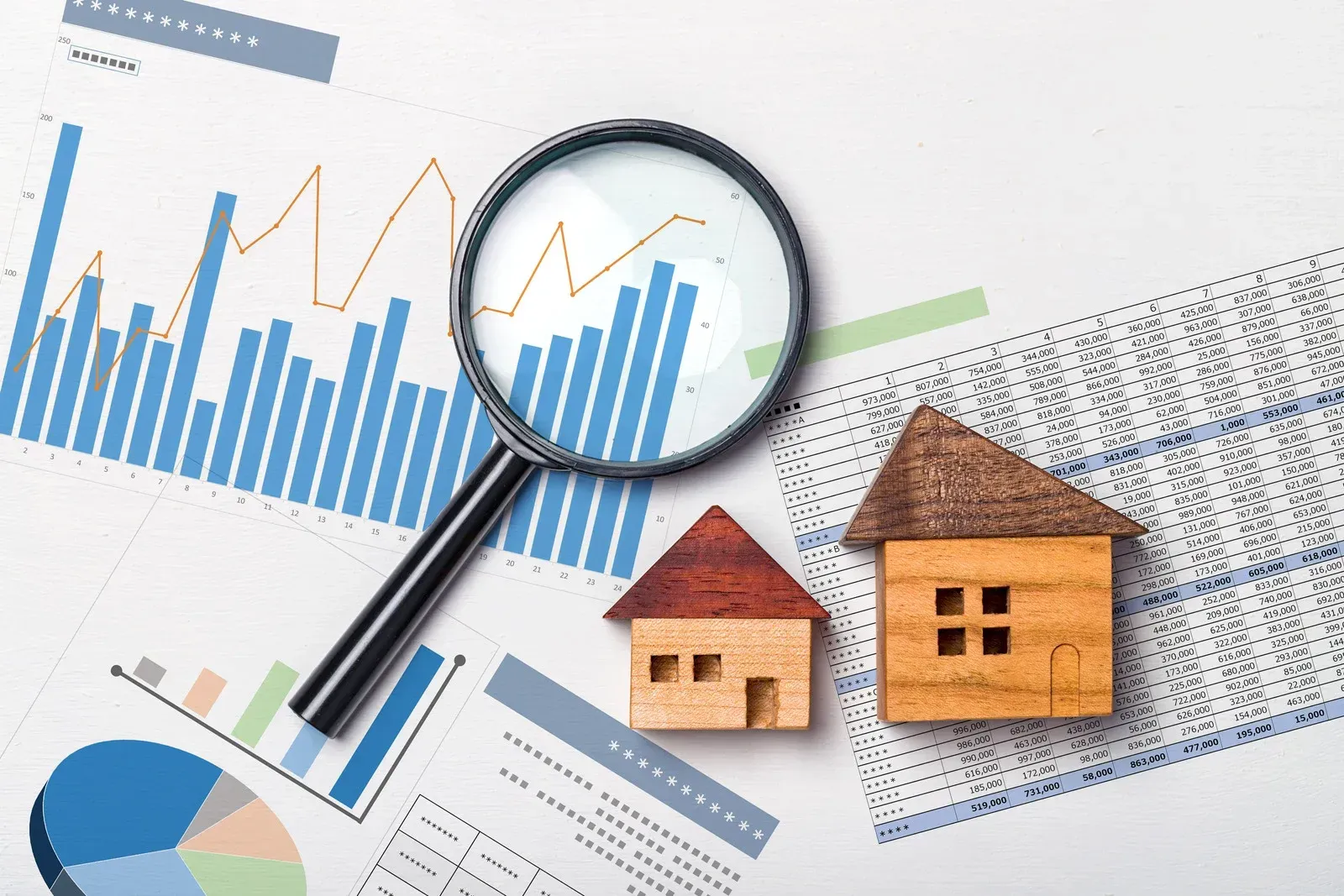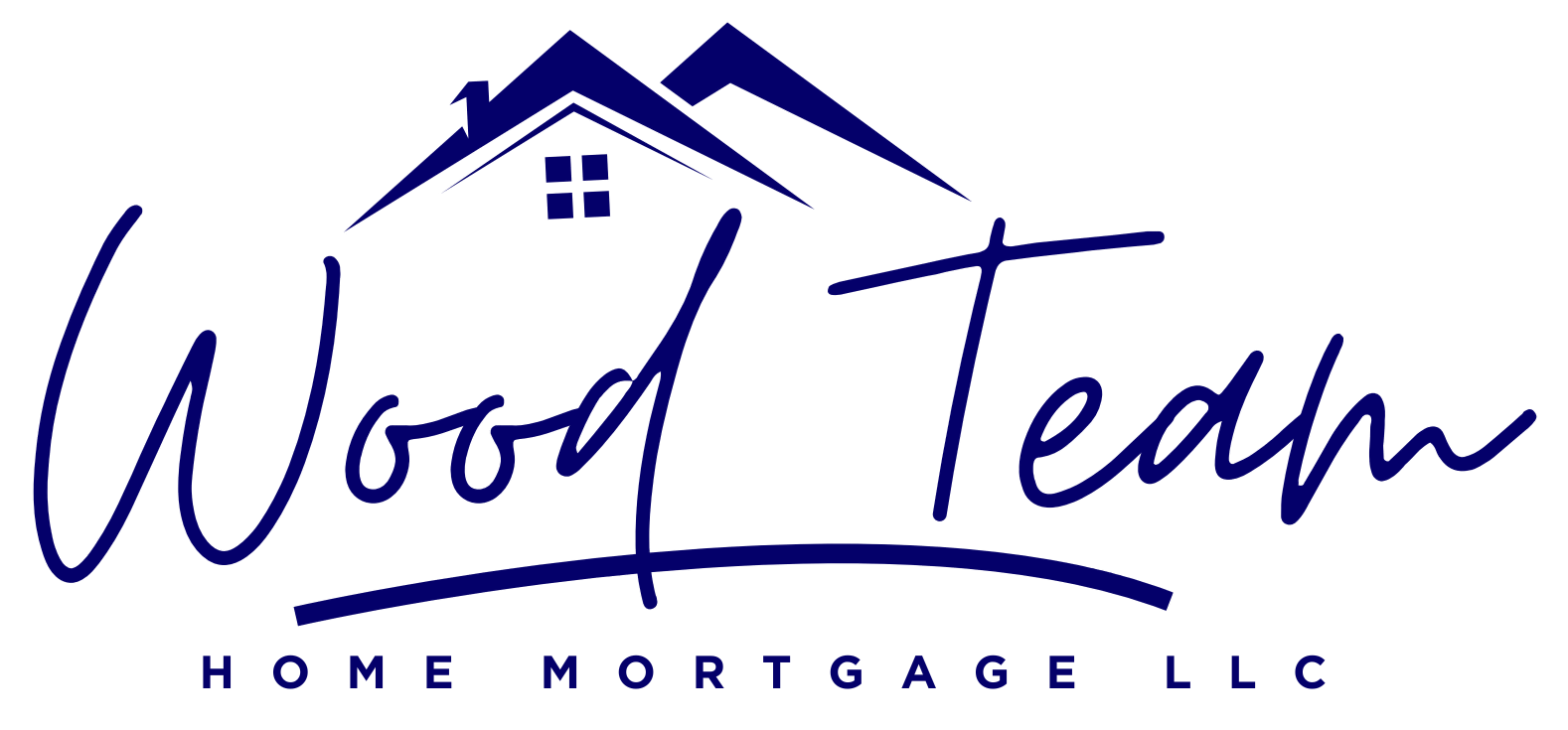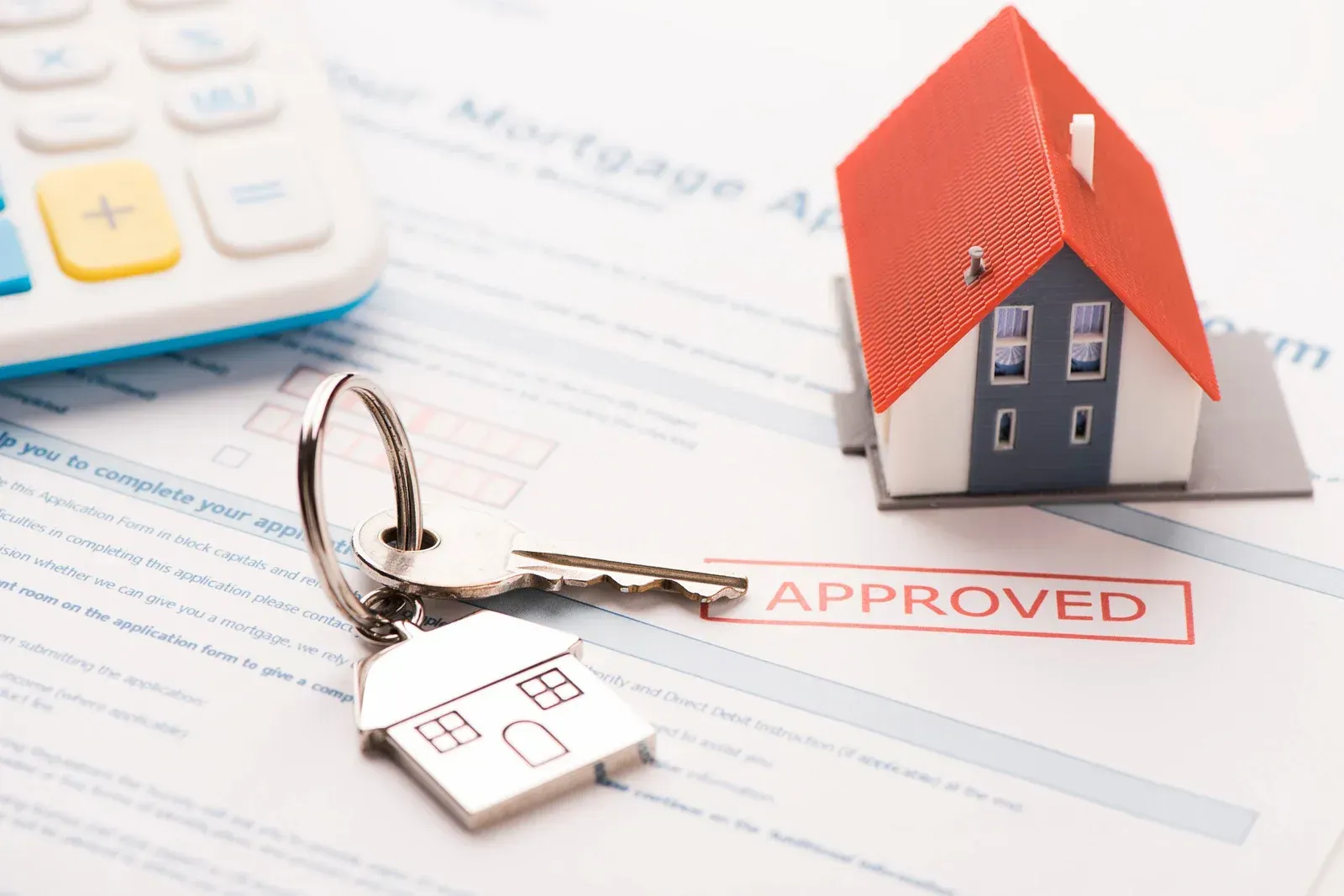Everything you need to know about HELOCs
What You Need To Know About HELOCs
Colleen Wood: Hello, and welcome to Leading Ladies of Montana Real Estate, a show about buying and selling homes in Montana and the power realtors and power lenders that make that happen. We are your hosts, Colleen Wood.
Alicia Rutz: And I'm Alicia Rutz. Each week we will discuss the housing market, how to navigate it and what questions you need to be asking yourself along the way, but that's not all.
Colleen Wood: We will also dive into how to navigate the ins and outs of being leaders in business and how to build a robust and dynamic team within that business and navigating the world as a career driven, professional all while raising a family.
Alicia Rutz: Join us as we share our highs and lows in real estate, business ownership and motherhood.
Colleen Wood: All right, girlfriend, let's talk all things HELOCs.
Alicia Rutz: Okay. So yeah. What are your thoughts? I've heard a lot of people are trying to get them now with rates increasing.
Colleen Wood: Yeah. People are trying to get liquidity.
Alicia Rutz: We have a HELOC on one of our homes just to have it as backup.
Colleen Wood: Line of credit. Yeah.
Alicia Rutz: Yeah. And it's nice to just know that it's there.
Colleen Wood: Yeah. So a HELOC is an acronym.
Alicia Rutz: Yeah. Let's talk about that.
Colleen Wood: Acronym for home equity line of credit. And it's typically only done on a primary residence. I had a gentleman asking the other day if he has an investment property and has lots and lots of equity in it, and he wanted to get a HELOC on it. So typically, no, it's only available on a primary residence. So, but a lot of people are asking for HELOCs right now because they're trying to gain liquidity. They're trying to get options. Inflation is high. People are trying to get access to that cash. So like we've talked before about protecting people's cash and we've talked about why people shouldn't be buying properties for cash right now because liquidity is king, cash is king right now. Having a nice little mortgage, even at a higher interest rate... It's not higher, a normal interest rate of like 6% is still a better use of your money than it is to completely drain all of your liquidity.
Alicia Rutz: Exactly. Okay. So why are you telling people... So what exactly, how much like is interest? How does that work on HELOC? How is that all?
Colleen Wood: So the difference between a HELOC and a normal fixed interest rate mortgage is that a HELOC, their interest rate is attached to prime. So there's prime plus a margin. So prime is that interest rate. When you hear the news out there talking about how the fed has increased interest rates, that is not the fed increasing mortgage interest rates, the fed is increasing prime and prime is the rate at which banks lend each other money. And so when banks lend out money, that is based on prime, they charge prime and then they add a margin. So add a little bit more, and that's what the bank gets paid, is that margin they're going to get that bit. And then that's what the rate is that you pay on your HELOC. However, that number can change because when prime adjusts, which has adjusted upwards twice this year and is expected to do so potentially eight more times this year.
Alicia Rutz: Yeah. I've heard that as well. It was just at a community meeting thing. And they're saying they're meeting eight more times and chances are, they're going to increase it every time.
Colleen Wood: Yeah. Every single time.
Alicia Rutz: And said it's between a quarter and a half percent that they've been raising it. That you can continue to probably see it.
Colleen Wood: Three quarters of a percent. Yeah. When you get a HELOC, that interest rate is not locked in at that number, at that fixed rate, like your normal fixed rate mortgage. It's going to be attached to prime, as prime continues to move. So when prime continues to walk up, guess what? Your payment continues to walk up as well. So suddenly your HELOC that you thought was just this little line of credit that you have-
Alicia Rutz: Which is totally what I have right now.
Colleen Wood: Yes. This is cute little line of credit that I have. Well, if you're using that line of credit and you have anything charged against it, now your payment is going up, up, up, up, up. Because a half of a percent in an interest rate can start to make a pretty big difference in your payment.
Alicia Rutz: Huge.
Colleen Wood: And if it's potentially eight times, we'll just say that they increase it a quarter, eight times, what is that? One, two, three, so 2% higher.
Alicia Rutz: Okay. So I already have a question, because-
Colleen Wood: They've already done it half.
Alicia Rutz: So we don't have anything against our HELOC. We haven't pulled out of it.
Colleen Wood: Yeah.
Alicia Rutz: Can I just close it? I don't even know how-
Colleen Wood: If you don't have anything against it, then just leave it. But if I was to give you advice-
Alicia Rutz: Yes, please.
Colleen Wood: And you were saying, Colleen, I need $100,000 to do a kitchen remodel or to invest into another property. I want a home equity line of credit so that I can do that down payment. And I would say to you, I think that's a very poor decision because you're going to use that money and you are not going to be able to pay it back in a short time. So prime is going to continue to increase. So is your payment going to continue to increase on a home equity line of credit. I would recommend to you that you just do a cash out refinance on your home because you could do a cash out refinance on a second home, investment property, or a primary reside.
Alicia Rutz: And you know what you interest rates are.
Colleen Wood: You know what your payment's going to be. There's no surprises. I'll tell you right now, it's not going to be 3%, but it's going to be... I mean, prime plus a margin, I just priced a HELOC for a guy the other day. And it was 6.25. So what's the difference? That 6.25 after eight adjustments with prime could easily hit 8%.
Alicia Rutz: Right.
Colleen Wood: So where we've used our HELOC before is when we're in between flipping homes.
Alicia Rutz: Yeah.
Colleen Wood: And so maybe one's under contract, but we're trying to buy the other one and we're going to have that cash really quickly.
That's a short order thing.
Alicia Rutz: Right. And so that's where it's been really beneficial for us, but-
Colleen Wood: And that's a good idea.
Alicia Rutz: Right. And it's been nice to have it, especially, because we don't owe much on our home and so forth. It's a pretty decent line, but this is good. Because I need to sit down her husband and check this out a little bit more.
Colleen Wood: Well, if it's going to turn over quickly, sometimes we'll do a home equity line of credit second on something, if somebody is going to sell a property in the next month or so, month or two, even six months. And that money's going to be able to come back and they're going to pay that off. That's an okay thing to do. And that would be a good use of a HELOC.
Alicia Rutz: Okay. I feel a little bit better than we're not effing everything up.
Colleen Wood: Yeah, no, that's a better use of a HELOC. It's when you're not going to be running into that money anytime soon. And you could potentially-
Alicia Rutz: Like a kitchen remodel.
Colleen Wood: Yeah. The kitchen remodel.
Alicia Rutz: Unless you're maybe doing the remodel to put it on the market and sell it.
Colleen Wood: Yeah, yeah. Yeah. So that might not be a bad idea. But the other thing to remember too is, remember last time that we were in a recession and things were interesting. Remember how the banks kept pulling all everybody's HELOCs and calling them due?
Alicia Rutz: Yes.
Colleen Wood: Remember that?
Alicia Rutz: And it was awful. And I know I've talked about this before, but I did mostly listings when I was in Portland during the depths of terrible recession. And so many people were coming to closing with cash because they had a second mortgage or a HELOC or something that they weren't be able to pay off. So they had to pay someone to take their home.
Colleen Wood: Yes.
Alicia Rutz: They'd come with $10,000. I think the most I saw was $75,000.
Colleen Wood: Yeah.
Alicia Rutz: But they were selling their home and had to come to closing with that cash to avoid foreclosure.
Colleen Wood: Yeah. Yeah. And it's because if you go and extend on a HELOC $150, $200,000 and suddenly your bank calls your HELOC due and you don't qualify for refinance to pay that off because-
Alicia Rutz: Someone got laid off or whatever.
Colleen Wood: Someone got laid off, interest rates are higher, blah, blah, blah. You are not in a great position because you can't refinance, you're forced. You're literally forced to sell your house in order to pay that off. What a horrible place to be in. So I would highly recommend for those of you that are kicking around ideas about getting... Just need access to cash, right? The cash is in your home. Everyone's homes right now is worth, are worth a ton of money. Right now we've all seen amazing increase in value on our homes. And you have access to that equity through a cash out refinance, know that the interest rate is not going to be what you probably have. It's going to be higher. But we have a gentleman right now that we're visiting with about a cash out refinance. And by doing a cash out refinance for him and paying off his other debt, we're going to save him $1,400 a month.
Alicia Rutz: Wow.
Colleen Wood: Which is $17,000 a year. He's having a hard time wrapping his head around whether or not that's a good idea because the interest rate is higher and we're like $1,400 a month. It's a mortgage payment. That's a mortgage payment.
Alicia Rutz: That is huge.
Colleen Wood: Yeah.
Alicia Rutz: That is so huge. How cool is your job that you can really change? Someone's life $1,400 a month at different times in my life, would've been absolutely game changing.
Colleen Wood: That was a paycheck in parts of our lives.
Alicia Rutz: Exactly.
Colleen Wood: That's like having a second job.
Alicia Rutz: Exactly. I think that was about what I made my first real job, was about that.
Colleen Wood: Yeah. That was before taxes.
Alicia Rutz: Right, right. And I was pumped about it. I'm rich.
Colleen Wood: I made over a $1,000. So yeah, definitely. I know that people are... We're so attached to these super low interest rates. They're just not on the shelf anymore guys. They're not available. We have to sell what's on the shelf. It's no longer available. You miss that bus. Don't miss the next one.
Alicia Rutz: I totally agree. And just because looking back like, oh, I could have had it there. I still say lock in now. Because it's only going to keep going up. Get in now if you're able to, because it's almost impossible that interest rates are going to go down this year.
Colleen Wood: Yeah. I don't-
Alicia Rutz: And maybe we'll be eating our words, but I would be very, very, very, very, very shocked.
Colleen Wood: Wouldn't that be... I mean, we would be so grateful, but I had a gentleman who went under contract on an investment property and he did not have such phenomenal credit. And so I quoted him an interest rate and it was at 7% and it was an investment property. He wanted to put minimal down. It was not so great credit. And his interest rate was 7% in this current market and that's pretty normal.
Alicia Rutz: Right. And there's nothing you can do about that.
Colleen Wood: There's nothing that I can... It's not me.
Alicia Rutz: Right.
Colleen Wood: I'm not doing it. I just have to quote was on the sheet.
Alicia Rutz: Right. Right.
Colleen Wood: And he decided to back out and of the contract and I asked him, "Why?" And he says, "I'm going to wait until interest rates are back to 5%." I'm like, "Oh honey, mean, that could be three or four years."
Alicia Rutz: Did he hear you, you think?
Colleen Wood: I think he's going to be back.
Alicia Rutz: Yeah.
Colleen Wood: I think he's kicking himself for not moving forward on that property. Because think about the money that he could have made as an investment property, on a property in Gallatin Gateway.
Alicia Rutz: Oh yeah.
Colleen Wood: and he wanted to be able to rent it. Think about all the money you're missing out on and potential income because you decided to not move forward with that. And if things continue to appreciate even a little bit, that's even more money you're missing.
Alicia Rutz: Exactly.
Colleen Wood: So you got to get to your... Stop thinking about the rate and think about the investment and-
Alicia Rutz: Can you make your payments?
Colleen Wood: Can you make your payments, yeah.
Alicia Rutz: Are you comfortable? This is just where we are. So you can't think about the past.
Colleen Wood: Nope. You got to decide whether or not you're going to move forward and you cannot just freeze. So people show up in different ways, right? Especially in times right now when things are difficult, they're going to do one of three things. Either they're going to flee, they're going to run away. Quitters, like we've seen in this industry where people are quitting. They're going to freeze. They're going to do nothing, like guard their eggs.
Alicia Rutz: Yep. Which also is going to keep things more flat. And again, the fear that we're talking about, it's going to create more of a downward spiral.
Colleen Wood: We're seeing a lot of freezers right now. People are just freezing.
Alicia Rutz: Yeah.
Colleen Wood: And then the other way to approach it is to fight it. You have to do something, proactively be doing something to move forward. And that's for investors as people that are wanting to buy homes in Montana, this is not just happening in Montana. But continuing to rent for the next two years while this rides out is absolutely just pissing money down the drain.
Alicia Rutz: Agreed. Well, thank you for all the information. You're the best. Thank you for joining us today.
Colleen Wood: Tune in next week for another episode of Leading Ladies of Montana Real Estate.












